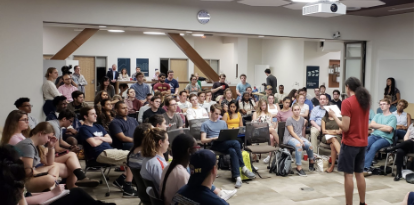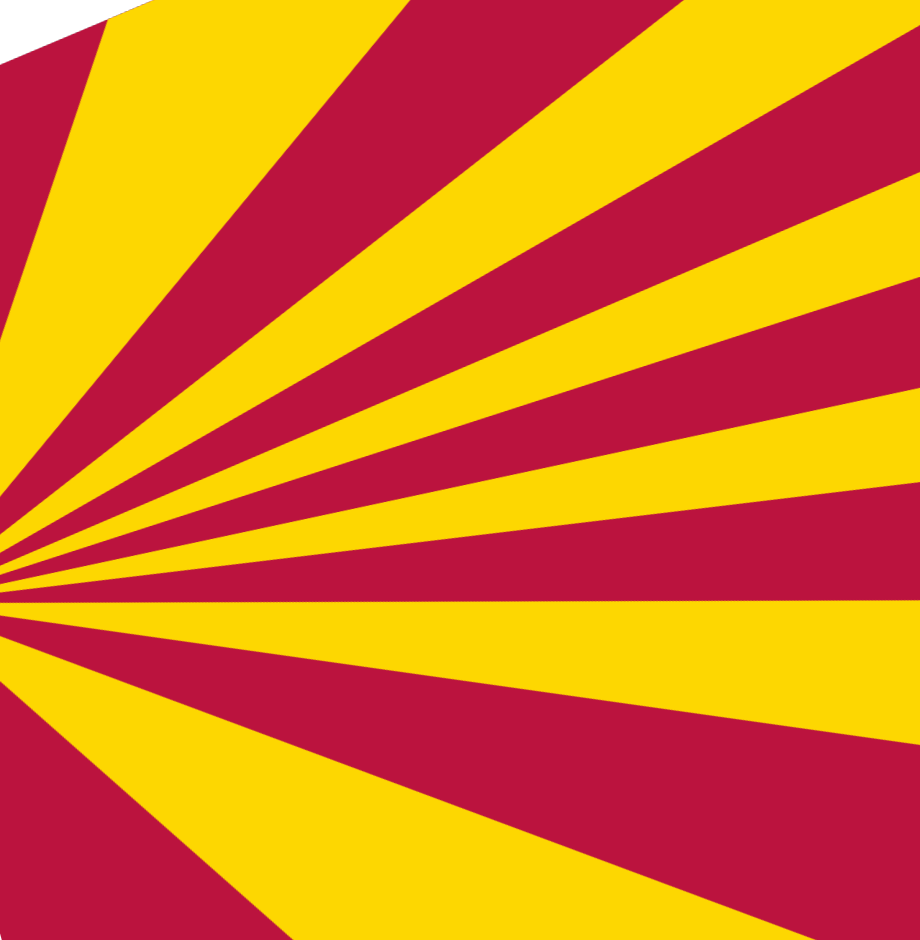
College Debates and Discourse
ACTA has forged a dynamic partnership with Braver Angels and the student group BridgeUSA to launch a civil debates program for students on college campuses nationwide.
ACTA’s Arizona Report Card

Arizona’s public universities should be leaders in free expression and diversity of thought, with policies and campus cultures that welcome new ideas and different points of view. In the last several years, they have taken important steps toward this goal, including adopting the Chicago Principles on Freedom of Expression, participating annually in the Regents’ Cup, and discontinuing the use of diversity, equity, and inclusion statements in their faculty hiring processes.
Despite these accomplishments, new research from ACTA’s Campus Freedom Initiative® (CFI) shows Arizona’s public universities have more work to do. In our survey [link] of over 3,000 students at Arizona State University (ASU), Northern Arizona University (NAU), and the University of Arizona (U of A), many respondents say they wish their campuses would guarantee and welcome free expression, but students still report high levels of intellectual intolerance from fellow students and faculty as well as the need to self-censor on a regular basis.
 ACTA Gold Standard for Freedom of Expression™
ACTA Gold Standard for Freedom of Expression™| COMMIT TO A CULTURE OF FREE EXPRESSION | ASU | NAU | UA |
|---|---|---|---|
| Adopt the Chicago Principles on Freedom of Expression or a similarly strong statement. | |||
| Establish clear expectations regarding free expression in student, faculty, and staff handbooks and codes of conduct. | |||
| Include a free expression unit in new-student orientations. | |||
| Protect the diversity of political viewpoints by adopting an institutional neutrality policy such as the Kalven Committee Report. | Arizona state law (ARS 15-1864) encourages universities to adopt neutrality in language that resonates with the Kalven Report. To date, ASU has not adopted such a policy. | Arizona state law (ARS 15-1864) encourages universities to adopt neutrality in language that resonates with the Kalven Report. To date, NAU has not adopted such a policy. | Arizona state law (ARS 15-1864) encourages universities to adopt neutrality in language that resonates with the Kalven Report. To date, U of A has not adopted such a policy. |
| FOSTER CIVIL DISCOURSE | ASU | NAU | UA |
| Sponsor campus debates that model civil discourse. | The SpEAK Team attends events and attempts to maintain/promote civil discourse, but neither does it nor any other entity at NAU seem directly involved in civil discourse event planning/selection. | ||
| Encourage the establishment of student groups promoting free expression. | The number of such groups on campus is very small. There is no evidence NAU encourages formation of such groups. | ||
| Protect the rights of invited speakers and listeners to engage with controversial ideas. | In February 2023, an on-campus event hosted by the T.W. Lewis Center generated considerable opposition from students and faculty, some forms of which do not meet Gold Standard expectations. The event was held, but disagreements over how this situation was handled resulted in the closure of the center. Former center director Ann Atkinson faulted ASU for the center’s closure here. ASU rejected Ms. Atkinson’s claims here. | ||
| Establish and enforce consequences that deter disruption of sponsored speakers, events, and classes. | |||
| Cultivate Intellectual Diversity | ASU | NAU | UA |
| Encourage presidents, provosts, and deans to model respect for a broad range of viewpoints. | |||
| Guarantee that viewpoint diversity is reflected in student life policies and practices. | |||
| Support academic centers dedicated to free inquiry and intellectual diversity. | There is no evidence of NAU supporting this type of academic center. | ||
| Make intellectual diversity a stated goal in faculty hiring, evaluation, and promotion. | There is no evidence of a university-wide effort on these issues. | There is no evidence of a university-wide effort on these issues. | There is no evidence of a university-wide effort on these issues. |
| Break Down Barriers to Free Expression | ASU | NAU | UA |
| Eliminate speech and IT policies that have a chilling effect on free expression. | |||
| Ensure that Title IX and other disciplinary procedures do not infringe on free expression. | |||
| Disband bias response teams. | NAU does not appear to have an official bias response team, but it permits reports of bias to be filed through its Office of Inclusion. | The Bias Education & Support Team (BEST) remains active. Statements from BEST indicate that it does not “restrict free speech or impede academic freedom” and does not “require members of our campus community to participate in any bias activity (phone call, meeting, etc.).” | |
| Review student government policies to ensure viewpoint neutrality in student group recognition and funding. | |||
| Advance Leadership Accountability | ASU | NAU | UA |
| Incorporate explicit policies of free expression in governance bylaws and other key institutional documents. | Although NAU has published several statements supporting free expression, and although it is governed by ABOR policies on these topics, more recent documents, such as the NAU New Charter and NAU’s 2025 strategic plan, do not include such topics. | ||
| Include a commitment to free expression as a criterion for presidential searches and evaluations. | Michael Crow has been president of ASU since 2002. The search brochure from that time could not be found. His track record suggests he is personally committed to free expression, but such a commitment should be a clear criterion in future presidential searches. | Free expression was missing from ABOR’s approved characteristics for NAU’s most recent presidential search. | U of A’s most recent presidential search concluded in 2024. No mention of free expression could be found in the search brochure. |
| Require free expression and viewpoint diversity training for administrative staff. | No publicly available evidence of such training was found. | No publicly available evidence of such training was found. | No publicly available evidence of such training was found. |
| Conduct regular evaluations of the state of free expression and intellectual diversity on campus. | ABOR’s annual free expression report does not contain this type of data. ASU does not appear to conduct such research on its own. | ABOR’s annual free expression report does not contain this type of data. NAU does not appear to conduct such research on its own. | ABOR’s annual free expression report does not contain this type of data. U of A does not appear to conduct such research on its own. |
The latest Free Expression Annual Report by the Arizona Board of Regents (ABOR) explains, “The Arizona Board of Regents and university leadership strive to protect intellectual freedom and free expression at Arizona’s public universities.” Both ABOR and Arizona’s public universities have adopted important policies aligned with this vision for campus freedom, but, as the following report ACTA and College Pulse shows, more work is needed to provide a culture of free expression for Arizona’s public university students.
View Survey Results45
%of ASU students report not speaking up at least once a month because they think their opinions will be unwelcome.
62
%of NAU students believe professors who say things students find offensive should be reported to the university.
42
%of UA students believe it is more important for colleges to prohibit offensive speech than to expose students to all types of viewpoints.

Launched in 1995, we are the only organization that works with alumni, donors, trustees, and education leaders across the United States to support liberal arts education, uphold high academic standards, safeguard the free exchange of ideas on campus, and ensure that the next generation receives an intellectually rich, high-quality college education at an affordable price.
Discover MoreSign up to receive updates on the most pressing issues facing our college campuses.